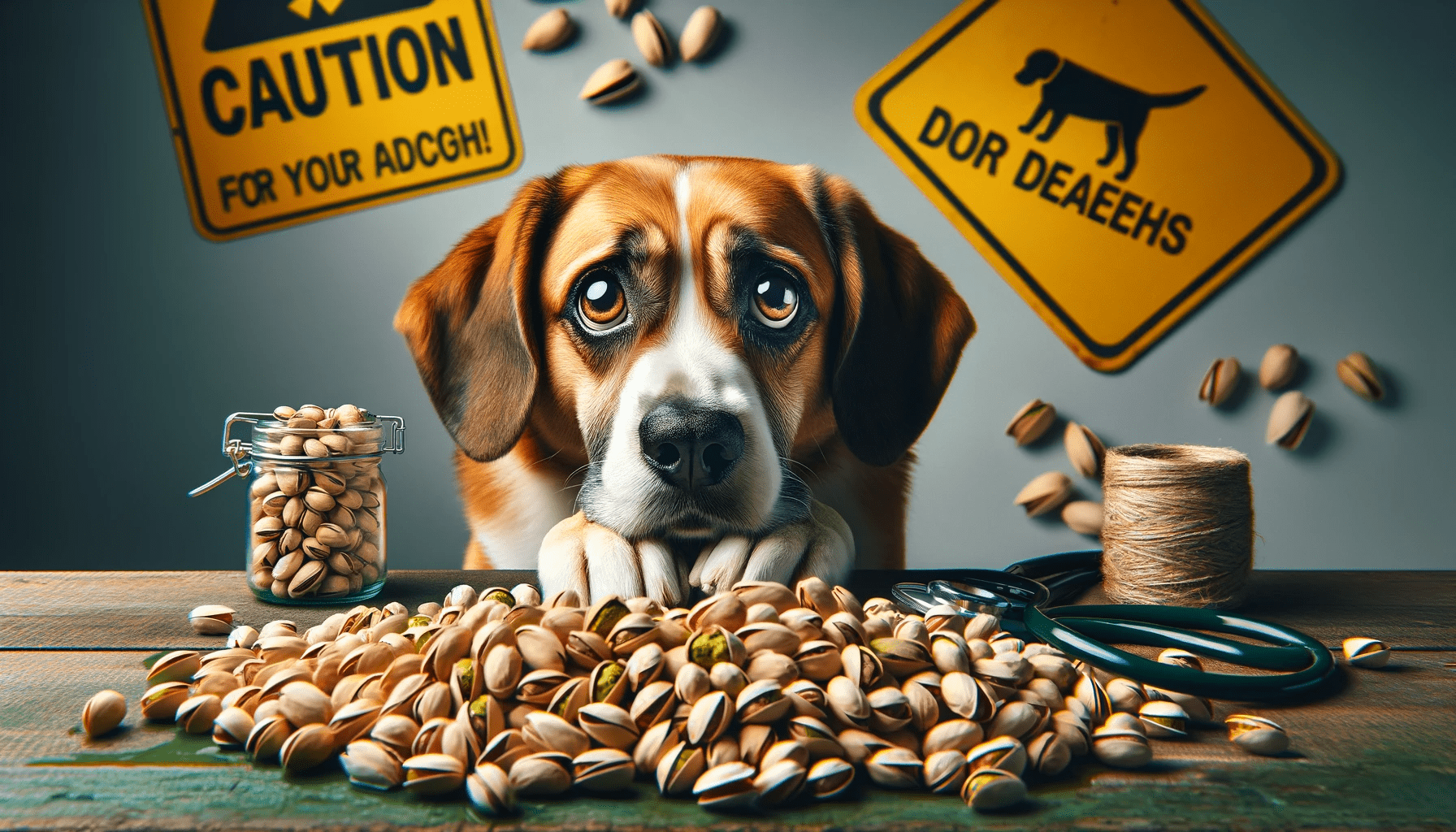Do you ever wonder why certain dogs have unique dietary needs?
Well, it all comes down to their breed, age, allergies, and medical conditions. Understanding the factors influencing a dog's nutritional requirements is crucial to providing them with a healthy and balanced diet.
In this article, we will explore the reasons behind the different dietary needs of dogs and discuss how you can tailor their nutrition to support their specific needs.
Key Takeaways
- Breed-specific diets are important for addressing the unique nutritional needs of different dog breeds.
- Factors such as age, size, and activity level also influence a dog's dietary needs.
- Senior dogs require specialized diets that address age-related health issues, including decreased digestive efficiency, changes in metabolism, dental health, and joint health.
- Diets formulated with ingredients like glucosamine and chondroitin can support joint health in senior dogs, while dental-friendly ingredients can help reduce the risk of dental disease.
Unique Dietary Requirements for Different Dog Breeds
If you want to understand why certain dogs' dietary needs are different, it's important to recognize that unique dietary requirements exist for different dog breeds. Breed specific diets play a crucial role in ensuring the health and well-being of our four-legged friends. Each breed has its own set of nutritional needs, which are determined by factors such as size, metabolism, and activity level.
Feeding puppies and growing dogs require special attention. During this stage of life, they need a diet that supports their rapid growth and development. Puppies have higher energy requirements than adult dogs and need a diet that's rich in essential nutrients such as protein, calcium, and phosphorus. It's important to feed them a balanced diet specifically formulated for their breed to ensure proper bone and muscle development.
As dogs mature, their dietary needs change. Some breeds are prone to certain health conditions, such as joint problems or obesity. Breed specific diets can address these issues by providing targeted nutrition. For example, large breed dogs may benefit from a diet that supports joint health, while small breed dogs may require a diet that helps maintain a healthy weight.
Factors Influencing Dietary Needs in Dogs
When considering factors influencing dietary needs in dogs, it's important to take into account their age, size, and activity level. These factors play a crucial role in determining the specific nutritional requirements of each dog. Here are three key factors that influence a dog's dietary needs:
- Age: Just like humans, dogs have different nutritional needs at different stages of life. Puppies require diets that are high in protein and essential nutrients to support their rapid growth and development. Adult dogs need a balanced diet to maintain their overall health and prevent nutrient deficiencies. Senior dogs may require specialized diets that address age-related health issues.
- Size: The size of a dog can greatly affect its dietary needs. Small breed dogs have faster metabolisms and higher energy requirements compared to larger breeds. They may need more frequent meals and higher-calorie diets to meet their energy needs. On the other hand, larger breed dogs are more prone to weight management issues and may require portion control to prevent obesity.
- Activity level: The activity level of a dog is another important factor to consider. Highly active dogs, such as working or sporting breeds, need diets that provide higher levels of protein and fat to fuel their energy demands. Less active dogs, like companion or senior dogs, may require lower-calorie diets to prevent weight gain and associated health problems.
Understanding these factors is essential for providing dogs with a well-balanced diet that meets their specific needs, prevents nutrient deficiencies, and promotes proper weight management.
Nutritional Considerations for Senior Dogs
As your dog ages, there are several important nutritional considerations to keep in mind.
Firstly, aging can impact your dog's ability to absorb nutrients from their food, so it's crucial to provide a diet that's easily digestible and contains high-quality ingredients.
Secondly, joint health becomes increasingly important as your dog gets older, and their diet can play a role in supporting healthy joints and managing conditions such as arthritis.
Lastly, dental health is essential for senior dogs, and choosing a diet that promotes dental hygiene can help prevent issues such as tooth decay and gum disease.
Aging and Nutrient Absorption
As your dog ages, their ability to absorb nutrients may change, requiring specific considerations for their nutritional needs. Aging and nutrient absorption are closely linked, and understanding the factors that influence dietary needs in senior dogs is crucial for their overall health and well-being.
Here are three important points to consider:
- Decreased Digestive Efficiency: Aging dogs may experience a decline in digestive enzyme production, leading to reduced nutrient absorption. This can result in deficiencies in essential vitamins, minerals, and other nutrients.
- Changes in Metabolism: The aging process can alter a dog's metabolism, affecting their energy requirements. Senior dogs often have lower activity levels and slower metabolisms, meaning they may need fewer calories and a different balance of nutrients compared to when they were younger.
- Dental Health Issues: Older dogs may also face dental problems such as tooth loss or gum disease, which can make chewing difficult. This can impact their ability to consume and digest certain foods, necessitating adjustments to their diet.
Joint Health and Diet
Are there specific dietary considerations for your senior dog's joint health?
Yes, joint health and diet are closely linked. As dogs age, their joints can become stiff and arthritic, causing discomfort and reduced mobility. To support your senior dog's joint health, it's important to provide them with a diet that meets their unique dietary requirements.
Different dog breeds may have different needs when it comes to joint health, so it's essential to choose a diet that's tailored to your dog's specific breed. Look for dog foods that are formulated with ingredients such as glucosamine and chondroitin, which are known to support joint health.
Additionally, maintaining a healthy weight through proper nutrition can help reduce strain on your dog's joints. Consulting with your veterinarian can help determine the best diet for your senior dog's joint health.
Dental Health and Nutrition
To maintain optimal dental health and nutrition for your senior dog, it's important to provide them with a diet that addresses their specific needs and promotes oral hygiene. Senior dogs are prone to dental issues, such as gum disease and tooth decay, which can affect their overall health and quality of life.
Here are three key considerations for maintaining your senior dog's dental hygiene and oral health:
- Choose a diet that includes dental-friendly ingredients, such as crunchy kibble or dental chews. These help to scrape away plaque and tartar buildup, reducing the risk of dental disease.
- Provide regular dental cleanings and check-ups by a veterinarian. This allows for early detection and treatment of any dental issues, preventing further complications.
- Consider adding dental supplements to your dog's diet. These supplements can help support healthy gums and teeth, promoting overall oral health.
Special Diets for Dogs With Allergies or Sensitivities
If your dog has allergies or sensitivities, a special diet may be necessary to address their specific dietary needs. Dogs with skin conditions often require special diets to manage their symptoms and improve their overall health. Skin conditions in dogs can be caused by various factors, including allergies to certain ingredients in their food. Hypoallergenic dog food options are available to help alleviate these allergies and sensitivities.
Hypoallergenic dog food is specially formulated to minimize the risk of triggering allergic reactions in dogs. These diets typically contain novel protein sources, such as duck, venison, or salmon, which are less likely to cause adverse reactions. They also avoid common allergens like wheat, soy, and dairy. By eliminating potential allergens from your dog's diet, you can help reduce the itching, redness, and inflammation associated with skin conditions.
It's important to consult with your veterinarian before making any changes to your dog's diet. They can help identify the specific allergens causing your dog's symptoms and recommend the most appropriate hypoallergenic diet. Additionally, your veterinarian may suggest conducting a food trial to determine the specific ingredients your dog is allergic to. This involves feeding your dog a hypoallergenic diet exclusively for a set period of time to monitor their response.
Tailoring Nutrition for Dogs With Medical Conditions
When addressing dogs with medical conditions, it's important to tailor their nutrition to meet their specific needs. This is especially true for dogs with kidney disease and diabetes. Here are some dietary considerations to keep in mind when tailoring nutrition for dogs with these conditions:
- Tailoring nutrition for dogs with kidney disease: Dogs with kidney disease require a special diet that's low in phosphorus and sodium. This helps to reduce the workload on the kidneys and prevent further damage. Additionally, a diet that's high in quality protein is important for dogs with kidney disease, as it helps to maintain muscle mass and support overall health.
- Dietary considerations for dogs with diabetes: Dogs with diabetes require a diet that helps to regulate their blood sugar levels. This typically involves feeding them a consistent amount of carbohydrates, proteins, and fats at regular intervals throughout the day. It's also important to choose a diet that's high in fiber and low in simple sugars, as this helps to slow down the absorption of glucose and prevent spikes in blood sugar levels.
Meeting the Dietary Needs of Active and Working Dogs
To meet the dietary needs of active and working dogs, it's crucial to provide them with a high-energy diet that supports their physical demands. These dogs require optimal nutrition to enhance their performance and ensure their overall well-being.
High-Energy Diet Requirements
Active and working dogs require a high-energy diet to meet their dietary needs. These dogs have a higher level of physical activity, which demands a diet that provides them with the necessary fuel and nutrients. To ensure optimal performance and health, consider the following high-energy food options for your active companion:
- High-quality protein sources: Look for dog foods that contain lean meats like chicken, turkey, and fish. These protein-rich ingredients provide essential amino acids for muscle development and repair.
- Complex carbohydrates: Opt for dog foods that include whole grains like brown rice and oats. These carbohydrates provide sustained energy for long periods of physical activity.
- Healthy fats: Choose dog foods that contain omega-3 fatty acids, such as those found in fish oil. These fats promote joint health, reduce inflammation, and support brain function.
In addition to a well-balanced diet, some active dogs may benefit from dietary supplements specifically designed for high-energy dogs. These supplements can provide additional nutrients and support their overall health and performance. Always consult with your veterinarian to determine the best options for your dog's specific needs.
Optimal Nutrition for Performance
You can ensure optimal nutrition for performance in active and working dogs by meeting their specific dietary needs. These dogs require a high-energy diet to support their intense physical activities. It's important to provide them with adequate protein, carbohydrates, and fats to fuel their muscles and maintain their overall health.
Additionally, active and working dogs may benefit from specific nutrients such as omega-3 fatty acids, which have anti-inflammatory properties and can support joint health. Proper hydration is also crucial for these dogs, as they tend to lose more water through sweating and panting.
Furthermore, pregnant dogs have unique dietary needs, as they require additional nutrients to support the growth and development of their puppies. Providing optimal nutrition for weight loss in active and working dogs can help them maintain a healthy body condition and enhance their performance.
Frequently Asked Questions
Can All Dog Breeds Eat the Same Type of Food?
No, not all dog breeds can eat the same type of food. Dog breed dietary differences exist due to their unique nutritional requirements. It is important to consider these differences when choosing the right diet for your dog.
What Factors Can Influence a Dog's Dietary Needs?
Several factors can influence your dog's dietary needs, such as age, size, activity level, and health conditions. It's important to consult feeding guidelines and consider a breed-specific diet to ensure optimal nutrition.
Are There Specific Nutritional Considerations for Senior Dogs?
As dogs age, their nutritional requirements change. Specific dietary needs for senior dogs include higher levels of protein, lower levels of fat, and added supplements like glucosamine for joint health.
What Are Some Special Diets Recommended for Dogs With Allergies or Sensitivities?
If your dog has allergies or sensitivities, special diets can help alleviate their symptoms. There are commercial diets available, but homemade dog food recipes for sensitive dogs can also be beneficial.
How Can Nutrition Be Tailored for Dogs With Medical Conditions?
Nutritional therapy can be tailored for dogs with medical conditions by using specialized formulas. These formulas are specifically designed to meet the unique dietary needs of dogs with specific medical conditions, ensuring their overall health and well-being.
Conclusion
In conclusion, it's important to understand that dogs' dietary needs can vary depending on their breed, age, allergies, sensitivities, and medical conditions. Meeting these unique requirements is crucial for their overall health and well-being.
By tailoring their nutrition accordingly, we can ensure that dogs receive the necessary nutrients to support their specific needs, whether they're active and working dogs or senior dogs. Providing a balanced and appropriate diet is essential for promoting optimal health in our canine companions.






